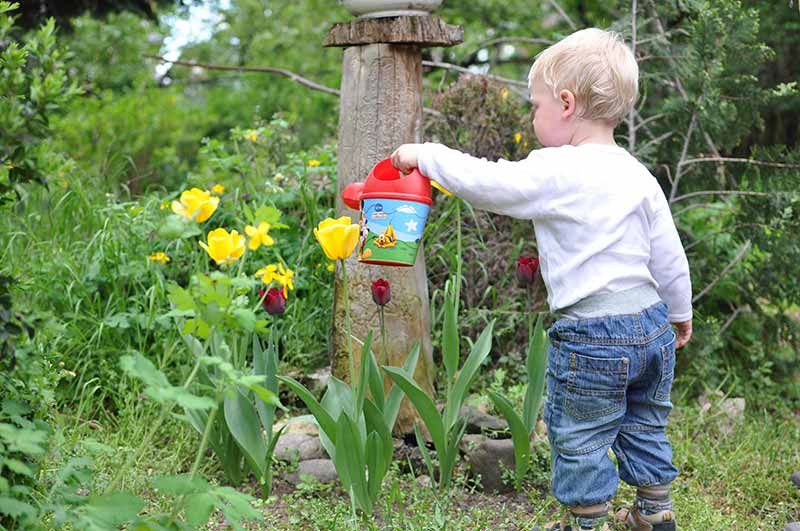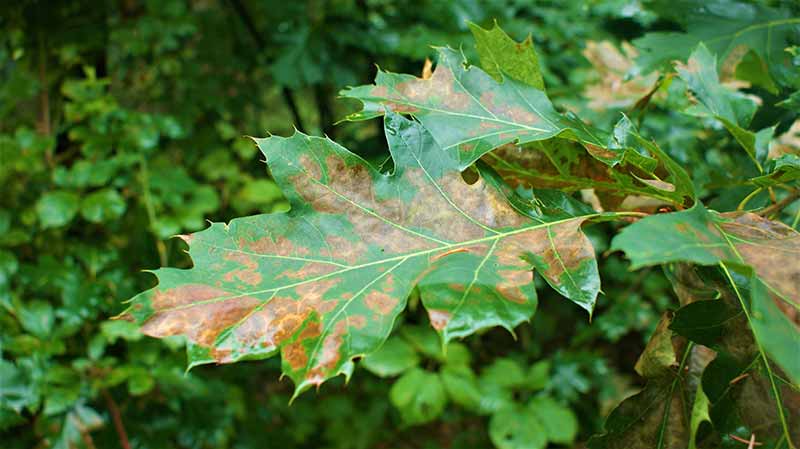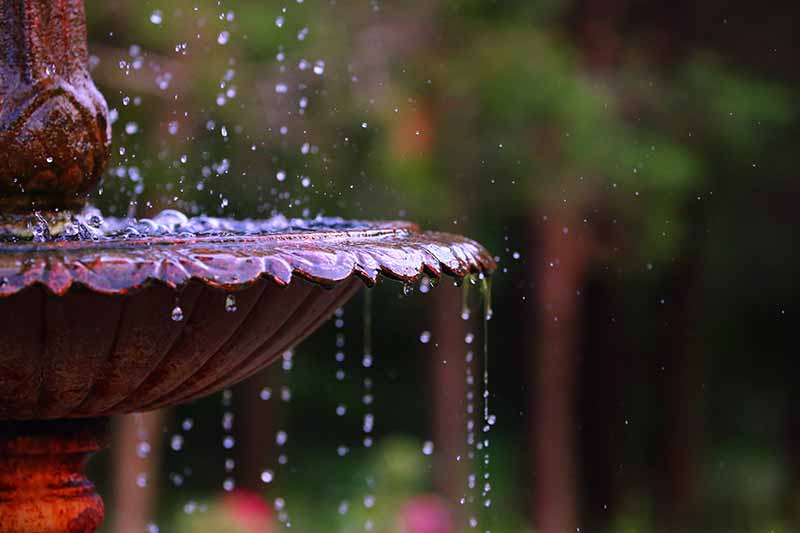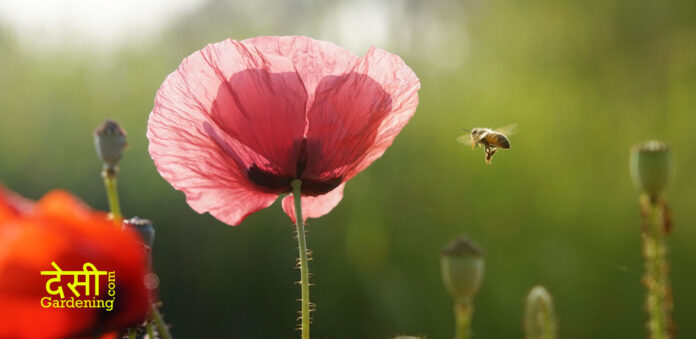Namaskar Desi Gardeners! In many parts of India, summers can get difficult to bear. When the temperature rises above 35 degree Celsius and more, our plants need help too. Here are some tips for summer care of plants and help you keep your garden cool in summer.
There are several ways to manage your garden from the heat but before coming to that, you need to note how much of your garden is exposed to the summer sun. A lot of it depends on your location and climate of the city or town you live. The second factor here is the location of your house, where are your plants kept and the hours of sunlight that fall on your plants.
These summer care tips will help you protect the plants and keep them healthy. Go through it and see which works for you.
Summer Care of Plants the Right way
The most important summer care of plants is to water correctly. Water your plants both in the morning and evening, if required. Of course, do not over water. Observe the soil as to which plants needs more or less water.

Drench your plants early in the summer mornings, preferably between 5 am to 7.30 am. Do not do it when the sun is already up. Even better, bathe the plants in the evening with cool tap or well water.
Some plants need more water than the others. Water these plants twice daily in morning and evening but if the soil is not yet dry, watch out for overwatering. Make sure the water drains out so that you know that is has been watered enough. Never water them in the afternoon heat – this is the biggest mistake in summer care of plants in the garden. The plants can go into shock.
Morning sun is best for summers. If possible, move your pots to a location that is shaded from the late sun.
Summer care of plants can change with your local climate. If you live in a dry climate, you should create some humidity that will help the leaves stay moist. Keeping a small garden fountain will help. If nothing else, keep a bucket of water near the plants and keep the plants close together.
Some plants like the full sun and can also tolerate the summer sunlight if the soil is moist. Plants like hibiscus, confederate rose, crossandra, calliandra, sunflowers, oleander, jasmine, cactus, succulents, and some native vegetable (like pumpkin, cucumber) and fruit plants (mango, fig, jackfruit etc) will not die in summer heat. But plants like rose, lily, azalea, chrysanthemum, dianthus, gerbera, geranium need to be kept shaded except for few hours of the morning sun. So if you can, move your pots around, keeping plants in groups. Divide it into full sun and semi-sun groups. This way you can manage easily.
Use a Green Net
A green net is a garden specific net that is hung above to protect the plants from heavy sunlight or rain. The net comes in different densities, say 25%, 50% and 75%. A 50% green net means that it will allow only half of the sunlight to pass through on the plants; a 75% means it will block 75% of the sun rays. Green net is a great alternative in creating a safety barrier for your garden. Once put up, it will stay for years. Gardeners, who have their plants on the roof, prefer this. It is easier and cheaper than a greenhouse. Also, you can take off the net in the winters if you want to. The green net will also protect the plants against heavy rains. For many gardeners, green net is a must-have for summer care of plants.
If you do not want to go for a full green net, just use anything else to create a shade for the more heat sensitive plants. Just note that there should be enough space above for the air to flow freely.
Use a drip. If the soil is getting dry too soon or you do not have time to water twice, use a drip. It is easy to use for individual pots or plants. It will keep the soil hydrated throughout the day.
Watch out for sunburnt leaves. Leaves will develop brown or black edges. The colour of the leaf can also fade. Leaves will start to droop. More sun means plant needs more water and if it is not getting it, the plant will show the signs.

Use water balls. Water balls help in keeping the soil moist also. It is good for small number of plants.
Mulch. Mulching your plants will keep the soil moist for a longer time. Applying a layer of cocopeat or coconut husk, wood clippings, dry leaves, hay or compost around the plant holds moisture for a longer time and keep the soil cool. Avoid using stones as these can heat up and make the soil warmer.
Use terracotta pots
Terracotta pots are best for the summers. It evaporates water from its pores, keeping the soil cool. However, painting the pots will reduce its capacity as the pores get blocked.
Do not use dark coloured pots. It will absorb more heat.
If your terrace or concrete flooring gets too hot, it can damage the roots, especially if the plants are in grow bags. Keep a layer of thermocol, wood or old books and newspapers.
Avoid keeping your plants near glass windows. Glass reflects the sunlight and sometimes may even concentrate heat and burn the leaves. This is a common problem with indoor plants that are kept near the glass windows.
Apply curd solution. Just as we love curd, so do plants. Take 100 gm curd in 10 litre water and apply on the soil. Curd contains good bacteria that promotes fertility and is also cooling. Do not apply too frequently, once a month is enough and remember to make it a light solution.
If your rose plants are getting too stressed, drench it in the morning and evening in cool water. If you do not have cool water, mix a little refrigerated water. But never pour refrigerated water directly on plants. It will stress the plants as the outside environment is hot and the soil is also heated up. Mix a little water in your regular water and apply only after sunset.

Avoid repotting and pruning in the hot season. It can put the plants to stress.
Avoid using chemical fertilizers and pesticides. This is important for good summer care of plants. Use unless it is absolutely necessary. Organic fertilizers are best suited to keep the plants healthy.
Reduce the use of fertilizers in summer. Avoid using mustard cake fertilizer in summer, either in powder or liquid form.
Any fertilizer if used, it should be used in a much diluted form. Liquid fertilizers are best for the summer season. You can use balanced NPK solution, sea weed or compost tea.
The best garden care in summer is to know what the best fertilizer to use for the plants is and how to use it. Compost tea or Vermicompost tea is best suited for this weather. It cools the soil, relieves the roots, and provides all the nutrients. To prepare it you need to soak compost in water for a few days, then dilute and apply. It can be applied direct into the soil or could be used as a foliar spray. Adding a little neem cake to it will also help as a pesticide and fungicide.
View this post on Instagram





























